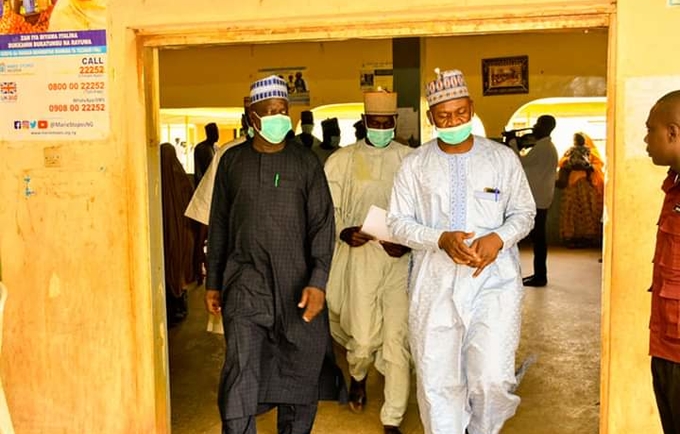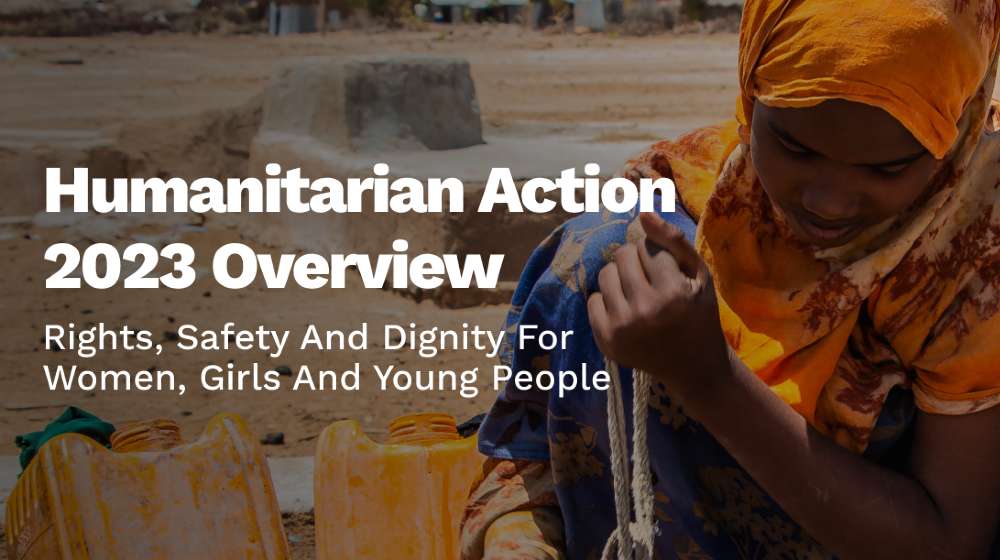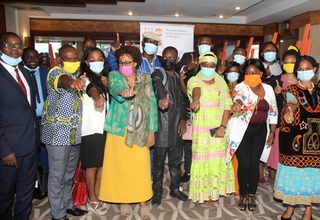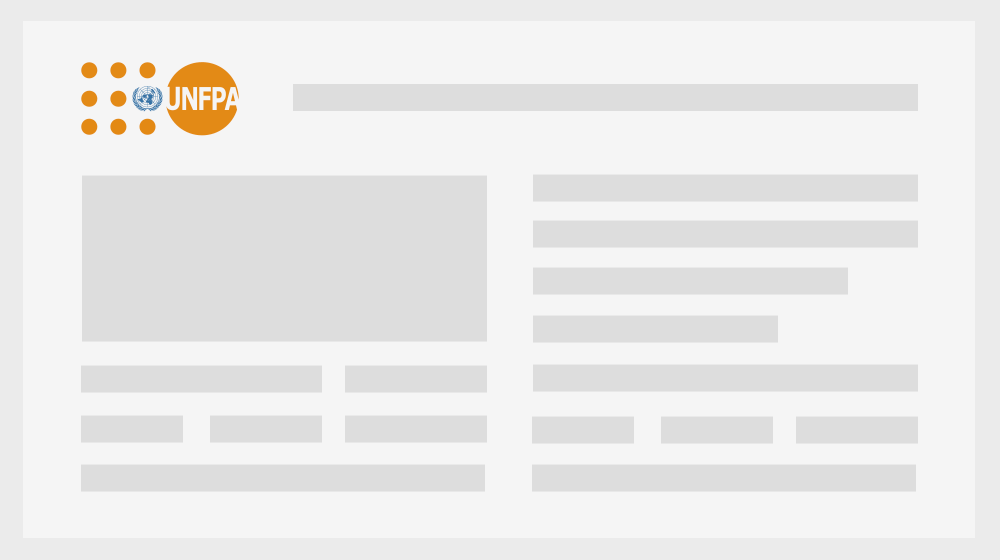Following the launch of the global humanitarian plan against the COVID-19 pandemic, the United Nations agencies in West and Central Africa are bolstering the collaboration with communities, drawing lessons from their Ebola experience to respond to the pandemic in the region.
Acting Chairperson of the Regional Directors Group of UN agencies Mabingue Ngom is calling for effective and swift interventions, using a community-based approach to overcome COVID-19 in West and Central Africa, a region particularly vulnerable to the COVID-19 pandemic.
Mabingue Ngom, who is also UNFPA regional director for West and Central Africa, and colleagues of the Executive Committees welcomed the launch of the global appeal that will support the region and called for closer attention to be paid to countries and communities facing humanitarian crises, coupled with weak health systems, as well as other challenges such as discrimination.
At the launch of the global humanitarian appeal, Mark Lowcock, Under-Secretary-General for Humanitarian Affairs and Emergency Relief Coordinator advocated for the world to pay particular attention to the world’s poorest and most vulnerable countries.
“If we leave coronavirus to spread freely in these places, we would be placing millions at high risk, whole regions will be tipped into chaos and the virus will have the opportunity to circle back around the globe.” Mark Lowcock encouraged.
United Nations Secretary-General António Guterres launched the US$2 billion global humanitarian plan on 25 March 2020, to finance the fight in the world's most vulnerable countries, most of which are in Africa.
“We must come to the aid of the ultra-vulnerable – millions upon millions of people who are least able to protect themselves. This is a matter of basic human solidarity. It is also crucial for combating the virus. This is the moment to step up for the vulnerable.” António Guterres noted, while appealing for countries to pull together their resources to combat COVID-19 menacing the whole of humanity.
The humanitarian plan will deliver essential laboratory equipment to test for the virus, and medical supplies to treat people; install handwashing stations in camps and settlements; launch public information campaigns on how to protect oneself and others from the virus; and establish airbridges and hubs across Africa, Asia and Latin America to move humanitarian workers and supplies to where they are needed most.
While calling for particular attention to women, girls and health workers, UNFPA Executive Director Dr. Natalia Kanem projects a cost of US$187.5 million for 2020. Dr. Kanem noted that, “UNFPA’s efforts will focus on strengthening health systems, procuring and delivering essential supplies to protect health workers, ensuring access to sexual and reproductive health and gender-based violence services, and promoting risk communication and community engagement.”
As at 31 March 2020 over 1,267 people have tested positive within a month of the pandemic appearing in 22 countries West and Central Africa. These numbers are expected to rise as thousands are being tested. Only Sao Tome and Principe has not recorded any case.
UN agencies are stressing the need for coordinated response including in the mid and long-term, while flagging other immediate secondary impact that goes beyond the health sector. These included, but are not limited to education, high HIV prevalence, large numbers of displaced people and refugees, limited access to water and sanitation, particularly for people living in overcrowded peri-urban areas and slums.
They emphasized the need to contextualize and tailor response strategies, given the challenges faced in the region with regards to cross-border movements, youthful populations, malnutrition, malaria, displacement, etc. The pandemic could have a different face in West and Central Africa compared to other regions in the world and therefore requires a specific response.
UN agencies are working together to implement a coordinated approach to respond to the pandemic, while advocating for governments to create humanitarian corridors for aid workers to deliver much needed humanitarian supplies and support to affected populations, including those in camps for refugees and displaced people.
Contacts:
- Jacob Enoh Eben| Regional Communications Advisor, UNFPA WCARO (for the regional communications group)| eben@unfpa.org | Tel: +221 77 358 66 62 – Dakar, Senegal
- Mensah Y. L. Aluka| Regional Coordination Specialist and Head of UNSDG-WCA Secretariat | E-mail: mensah.aluka@undp.org | Tel: +22177 529 5055 – Dakar, Senegal




